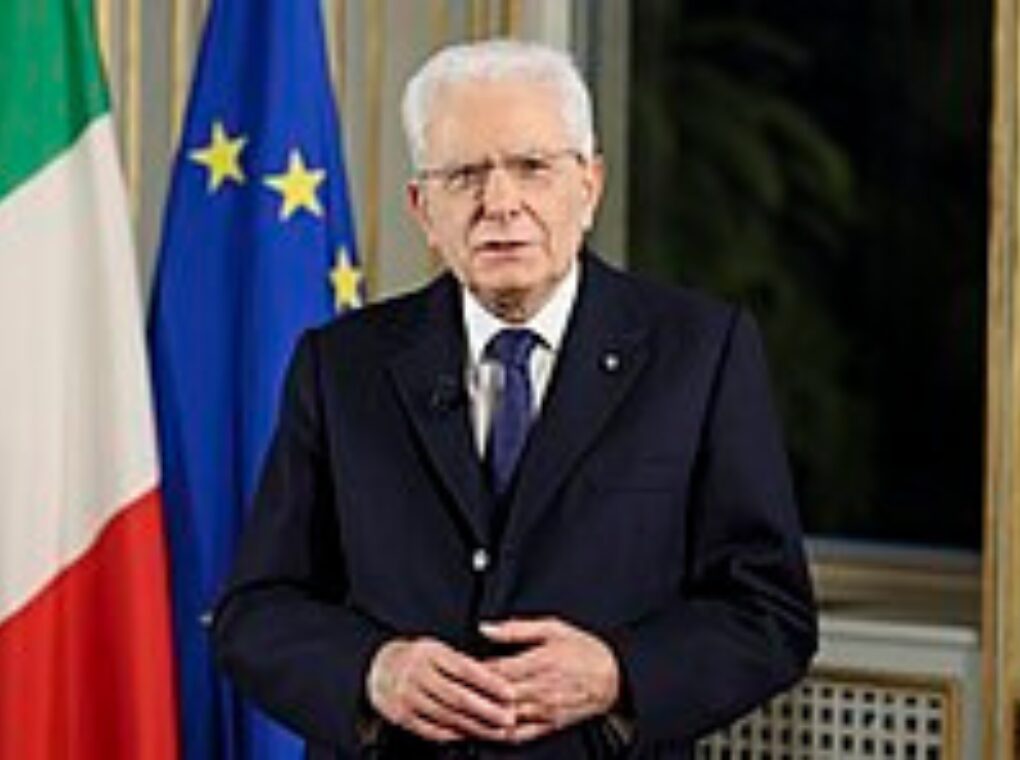Italian President Sergio Mattarella delivered a solemn yet urgent address during Germany’s National Day of Mourning (Volkstrauertag) on November 16, using the commemorative platform to warn Europe about the resurgence of war, hatred, and historical amnesia at a time of escalating global tensions.
The speech comes just as NATO leaders and Western analysts circulate increasingly stark warnings toward Russia — including remarks highlighting that “one nuclear weapon can wipe out an entire city” — prompting fresh fears of nuclear brinkmanship amid the ongoing conflict in Ukraine.
A Message Rooted in History, Delivered in Fragile Times
Speaking before Germany’s parliament in Berlin, Mattarella invoked the post-World War II pledge of “never again”, a vow forged from the horrors of fascism, genocide, and total war. However, he warned that the conditions threatening to unravel that promise are once again visible today.
“The tragedies of war and racism are resurfacing — today, in Kyiv and in Gaza,” Mattarella said, drawing parallels between Europe’s violent past and its increasingly unstable present.
The Italian president honored victims of all wars, persecution, and tyranny — from the Holocaust to today’s civilian casualties — while stressing Europe’s duty to protect democratic values, human dignity, and historical memory.
NATO’s Nuclear Warning Casts a Shadow
Mattarella’s address unfolded amid growing alarm inside NATO, where leaders have sharpened their tone toward Moscow. In recent days, senior alliance figures have underscored the catastrophic power of nuclear weapons, noting that even a single strike could destroy an entire city. While these remarks were not part of Mattarella’s speech, the timing heightened the gravity of his message.
The escalating rhetoric reflects mounting Western concern that Russia could widen its war or intensify strategic threats, particularly as fighting in Ukraine enters another winter with no diplomatic breakthrough in sight.
Analysts say such warnings are intended to deter Russian escalation — but they also risk raising tensions at a time when the world is already on edge.
Ukraine and Gaza: Europe’s Dual Moral Test
By naming both Kyiv and Gaza, Mattarella placed Europe at the intersection of two of the world’s most volatile conflicts:
In Ukraine, Russia’s ongoing assault has destroyed cities, displaced millions, and reshaped Europe’s security landscape.
In Gaza, mounting civilian casualties have fueled humanitarian outrage and renewed debates about accountability, proportionality, and international law.
Mattarella’s call for compassion and clarity was seen as a reminder that Europe cannot selectively apply its moral values.
“Europe carries the historic responsibility to safeguard memory, dignity, and democracy,” he said. “These principles cannot be abandoned, even in moments of fear and uncertainty.”
Warning Against the Return of Extremism
Mattarella also cautioned that dangerous ideologies — including racism, xenophobia, and historical revisionism — are re-emerging across Europe and beyond. Such forces, he argued, echo the same patterns that once led the continent into catastrophe.
His remarks reflect broader concerns among European leaders about rising polarization, hate crimes, and extremist political movements gaining traction across the continent.
A Call for Unity and Vigilance
The Italian President concluded with a powerful appeal for European unity, urging nations to confront war, resist hate, and defend the values that have sustained peace in the post-war era.
As NATO confronts Russia’s aggression, as global conflicts intensify, and as nuclear warnings resurface in public discourse, Mattarella’s message served as a reminder that history’s lessons are not symbolic — they are warnings.
Europe, he said, must choose remembrance over complacency, principle over fear, and unity over fragmentation.
